Roof replacements and major repairs are among the biggest home investments you’ll make—often costing thousands of dollars. While the benefits of a new roof are clear, the upfront price can feel daunting. Fortunately, today’s roof financing options give homeowners the flexibility to protect their property without breaking their budget.
In this guide, we’ll explore common financing paths for roofing projects, how they work, and what you should consider when comparing options.
Why Financing Your Roof Makes Sense
Not everyone has the cash on hand to cover a $10,000–$20,000 roof replacement. Financing allows you to:
- Start the project sooner—especially in emergencies
- Spread payments out over time
- Preserve savings for other needs
- Invest in higher-quality materials with long-term value
- Protect your home from further damage
A secure roof isn’t just a want—it’s a need. Financing ensures safety and peace of mind without delay.
Common Roof Financing Options
1. Contractor Financing
Many roofing companies partner with third-party lenders to offer in-house financing.
Pros:
- Fast application and approval process
- Can include promotional offers (0% interest for 12 months, etc.)
- Requires no separate bank or lender
Cons:
- Terms and interest rates vary by lender
- May have limited flexibility in repayment options
Liberty Roof Co. offers financing plans tailored to homeowners. Contact us to learn more
2. Personal Loans
A personal loan through a bank, credit union, or online lender is an unsecured loan based on your credit score.
Pros:
- Fixed interest rate and monthly payments
- No need to use your home as collateral
- Quick approval—sometimes within 24 hours
Cons:
- Higher interest rates if credit is poor
- Loan maximums may not cover full roof costs
Best for: Homeowners with good credit and smaller project budgets.
3. Home Equity Loans or HELOCs
If you have equity in your home, you can tap into it with a home equity loan or home equity line of credit (HELOC).
- Home Equity Loan: Lump-sum payout with fixed rate and term
- HELOC: Revolving credit line with variable interest rate
Pros: :
- Lower interest rates than personal loans
- Can cover large projects
- Interest may be tax-deductible
Cons: :
- Uses your home as collateral
- May take longer to process
- Risk of foreclosure if you default
Best for: Long-term homeowners with equity and good credit.
4. Credit Cards
For small repairs or quick emergency fixes, credit cards may be an option.
Pros:
- Easy access if you already have a card
- Some offer 0% APR for 12–18 months
Cons:
- High interest rates after introductory period
- Not suitable for full roof replacements
- Can affect your credit utilization ratio
Tip: Only consider credit card use for smaller jobs or if you can pay off the balance within the promo period.
5. Government Assistance Programs
Some state and federal programs help low-income homeowners afford essential home repairs, including roofing.
- FHA Title I Loans
- USDA Rural Development Loans
- Energy-efficient improvement programs
Note: Availability depends on income, location, and property status.
Best for: Homeowners on a limited income or in underserved areas.
Can Insurance Help Pay for a New Roof?
Yes—if your roof was damaged by a covered peril (hail, wind, storm, etc.), your homeowners insurance policy may help cover the cost.
What to do:
- Contact your insurance company immediately after the event
- Schedule a roof inspection to assess damage
- File a claim and submit documentation
- Review coverage terms and deductible
Need help navigating a claim? Liberty Roof Co. assists clients through the insurance process as part of our residential roofing services
What to Consider When Choosing a Financing Option
Before signing on the dotted line, evaluate:
- Total project cost
- Monthly payment amount
- Loan term (short-term vs long-term)
- Interest rate (fixed vs variable)
- Prepayment penalties
- Whether insurance will cover part of the cost
Ask your roofer for a breakdown of costs to ensure you’re not borrowing more than necessary.
How Liberty Roof Co. Helps Make Roofing Affordable
We understand that a new roof is a big commitment—and we work to make the process transparent, accessible, and affordable.
Our support includes:
- Flexible financing options through trusted partners
- Assistance with insurance claims and documentation
- Transparent quotes and pricing, with no hidden fees
- Options for phased projects or emergency repairs
Roof Financing FAQ
Does financing affect my credit score?
Yes, most lenders perform a credit check when you apply. On-time payments can help your score, while missed payments may hurt it.
Can I finance just part of the roof project?
Absolutely. Many homeowners pay part in cash and finance the rest.
Are there roofing companies that offer 0% financing?
Some promotions offer zero interest for a fixed period—usually 6 to 24 months—but terms depend on credit and lender policies.
Take the Next Step Toward a Safer Roof
A strong roof is a smart investment—and with the right financing, it’s also affordable. Whether you’re facing a weather emergency or planning ahead, Liberty Roof Co. offers personalized support to help you make the best decision.
Schedule a free consultation and ask about our financing options
